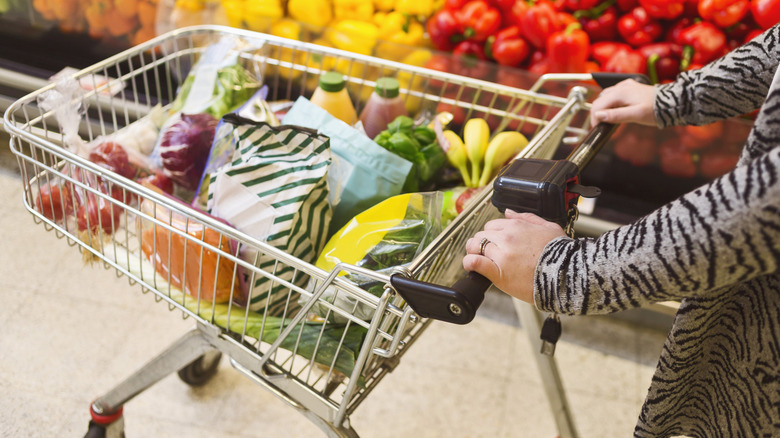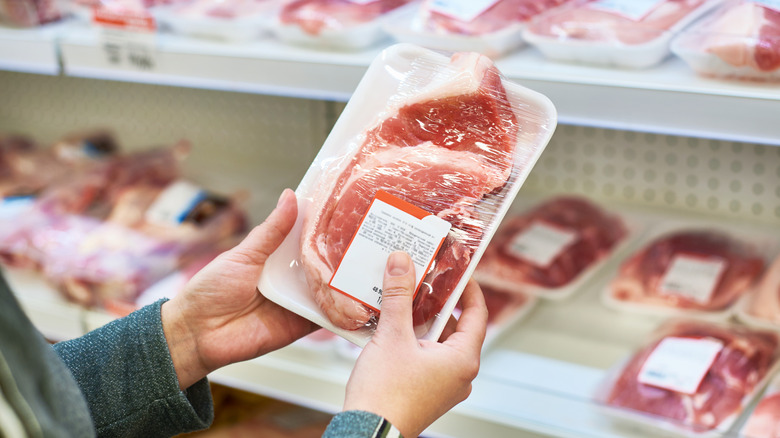Follow One Shopping Cart Rule To Prevent Cross Contamination
Whether you're a chaotic grocery shopper who thrives on aimlessly wandering the aisles or a more organized customer who never shows up without making a grocery list, it's important that everyone recognizes food safety rules as they shop. It's pretty common to hear people talk about cross contamination while cooking, but the cross contamination risk actually begins from the moment you pick up raw animal products at the store; that is why it's our responsibility to take precautions. A useful rule of thumb when purchasing items such as seafood, poultry, meat, and eggs is to ensure that they don't come into contact with any other items in your cart.
The U.S. Department of Agriculture and the U.S. Food and Drug Administration both advise separating raw meat and eggs from the rest of your shopping cart, as the containers they come in aren't always foolproof. A small puncture in the plastic or tear in the butcher paper could cause meat juices to leak onto fresh fruits and vegetables or the packages of ready-to-eat foods. Now, those bananas have just become patient zero in cross contamination.
To prevent this, experts recommend putting anything that might drip into plastic bags before placing it in your shopping cart. Better yet, use the bag as a makeshift glove to avoid touching the package entirely. If you know you'll be choosing fish for fish tacos from the seafood counter, you can always grab a few plastic bags from the produce section beforehand. Also, remember to bag raw meats in a totally separate bag at checkout.
How does cross contamination happen?
Cross contamination occurs when raw animal products that carry harmful pathogens come into contact with otherwise safe foods or clean items. For example, if you're preparing a shrimp cocktail but forget to wash your hands after transferring the raw seafood from the basin to boiling water, anything you touch afterward will be contaminated; it can therefore harbor bacteria and potentially cause foodborne illnesses. The stove dial, the spoon you're using to stir, the refrigerator handle, the fresh lemon wedges you cut -– bacteria doesn't discriminate. The same is true at a grocery store — just picking up a package of leaky raw chicken and proceeding with your shopping means that everything you grab afterwards could get contaminated.
Preventing cross contamination begins in the refrigerated section of the grocery store but extends until the packaging is properly discarded after usage. When you get those raw foods home (hopefully in those extra plastic bags), keep the items separate from other foods by storing them in meat drawers or on a tray or plate, especially when defrosting meat. Wash your hands thoroughly after handling these products and use soapy, hot water to disinfect any kitchen tools that come into contact with them (including spoon rests and cutting boards).

